Melaka (or ‘Malacca‘) is the oldest town in Malaysia and one of the country’s major historic attractions. Melaka (map) can trace its roots back to the 15th century when it was founded by a prince from Temasek (present day Singapore). The settlement grew very quickly due to its favourable geographic location at one of the world’s most important shipping lanes: the Straits of Malacca, which connects the Far East with India, the Middle East, Africa and Europe. Melaka is a great day trip from Kuala Lumpur or Singapore but I recommend spending a few days there to truly appreciate its history, culture and atmosphere. Scroll down to view my Melaka photos with suggestions for things to do in Melaka.
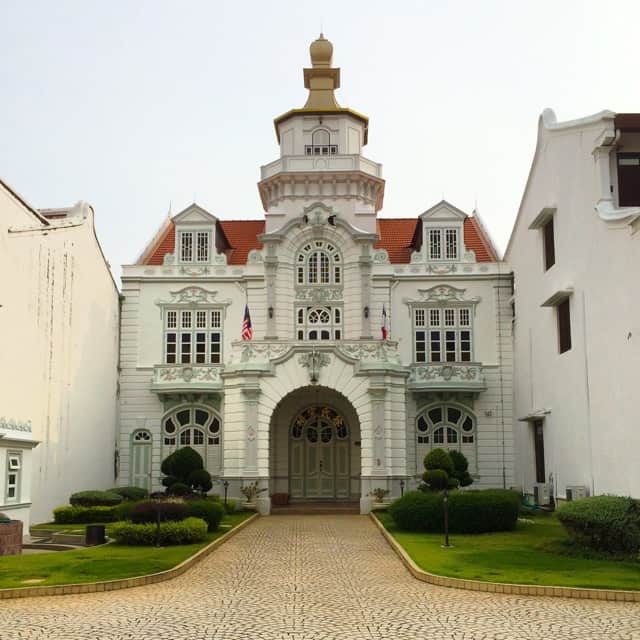

A short history of Malacca
…Malacca was second only to Venice in global trade in the 15th century. The port was regularly dominated by the cacophonies of hundreds of busy merchants who conversed in more than 50 different languages. The air was constantly filled with the scents of exotic perfumes and spices. The shelves at the market place were stacked with porcelain and silk from China, tea from the Indian foothills of the Himalayas, rice from Burma, dates from Arabia, carpets from Persia and a host of other merchandise.
In the early 16th century, the first Portuguese armadas arrived in Malacca, [and] proceeded in one swift move to conquer the weakened Malaccan Sultanate. The Portuguese ruled Malacca for 131 years (1511 – 1642) before finally conceding defeat to the Dutch, who in turn ruled the Sultanate until the Treaty of London (1824) by which Malacca was given to the British in exchange for the British colony of Bencoolen in Sumatera.
Source: preface of my university thesis
Things to do in Melaka
Through the centuries, Malacca became a melting pot of cultures. Immigrants from China, India and the Middle East settled in Malacca and assimilated themselves by adopting local customs. They soon became known as the Baba-Nyonya/Peranakan community. In addition, the mix of European (Portuguese and Dutch) and Asian groups created new ‘Eurasian’ communities. This cosmopolitan landscape exists till today and manifests itself in the local customs, architecture and cuisine in Malacca. I spent a few days exploring Malacca in search of this unique melting pot of cultures.
1. Visit the historic highlights
Being the oldest city in Malaysia, Melaka has a unique array of historic monuments. The most important to visit are within a short walking distance of each other. These are A Famosa (16th century Portuguese fort), the 16th century Church of St. Paul (atop the hill above A Famosa), Stadthuys (18th century Dutch city hall) and the adjacent Christ Church.
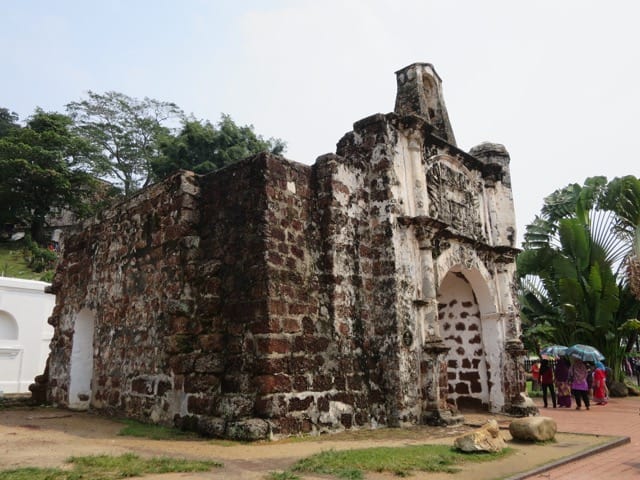
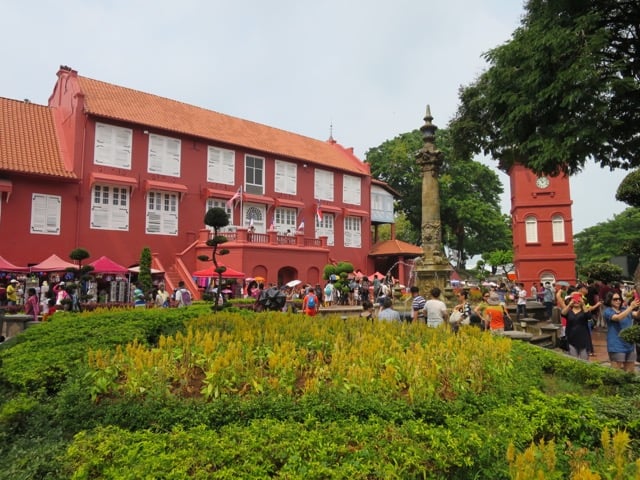
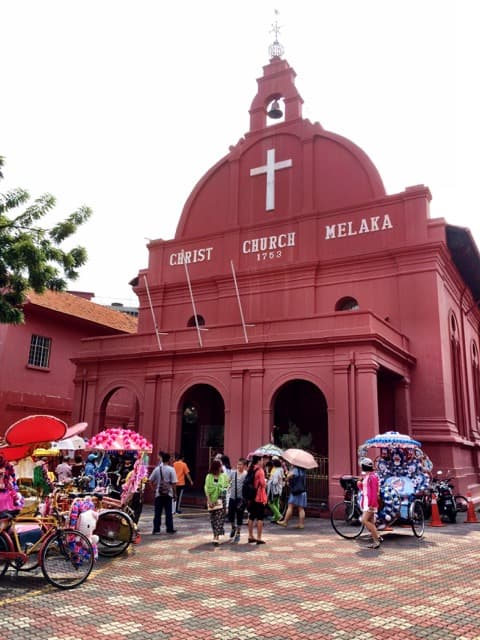
2. Explore the old town
Exploring the old town of Melaka is a wonderful, multi-sensory experience! Start with the two most famous streets: Jonker Street and Heeren Street. From here, I recommend wandering off into the side lanes. Jonker Street is Melaka’s most popular street for visitors due to its many shops, restaurants and street market.
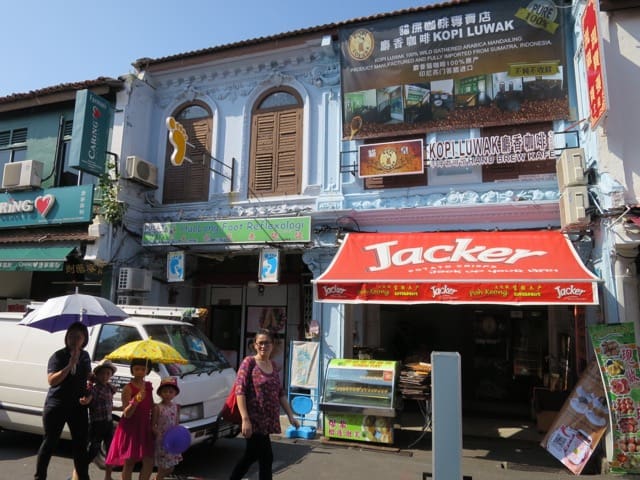
As you walk down Jonker Street, you’ll undoubtedly pass beautiful antique stores, restaurants, food stalls and street musicians. Step into any of the shops to see the gorgeous architecture of an old Peranakan shophouse.
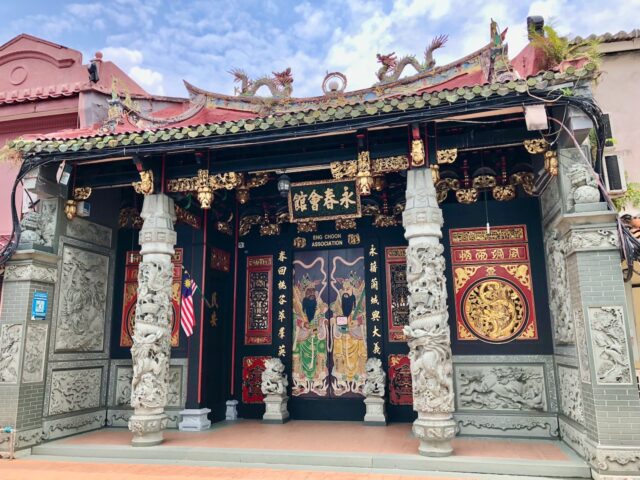
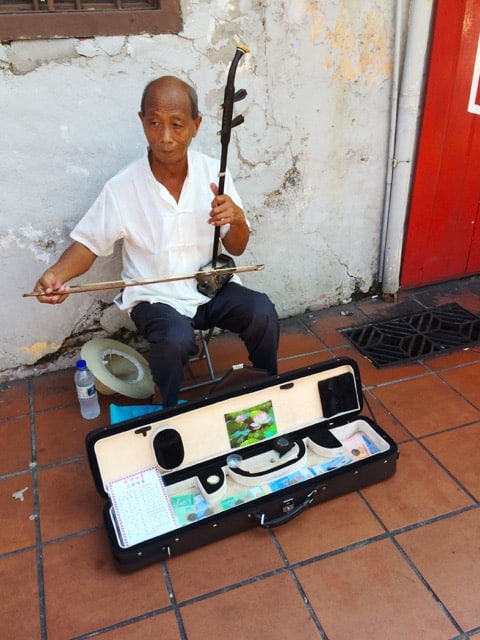

3. Shop for antiques
There’s a myriad of antique shops in Melaka, many of which can be found in Jonker and Heeren streets.
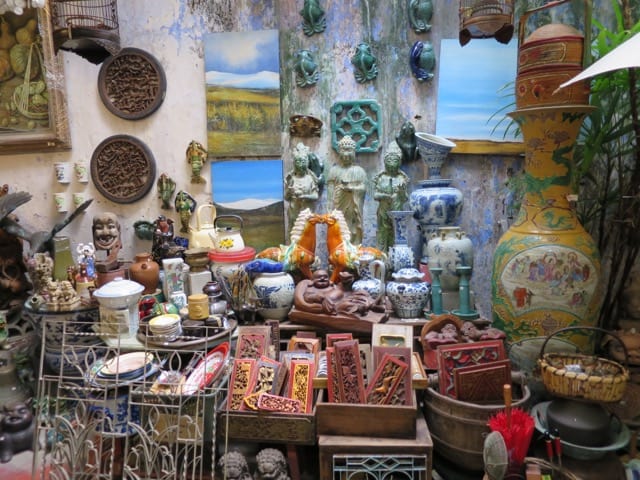
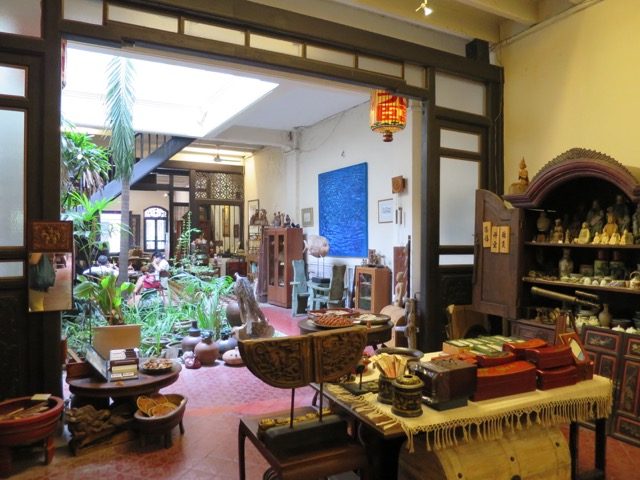
4. Visit historic places of worship
Just off Jonker Street is one of the oldest mosques in Malacca: the Kampung Kling mosque, built in the 18th century by Indian Muslim merchants.
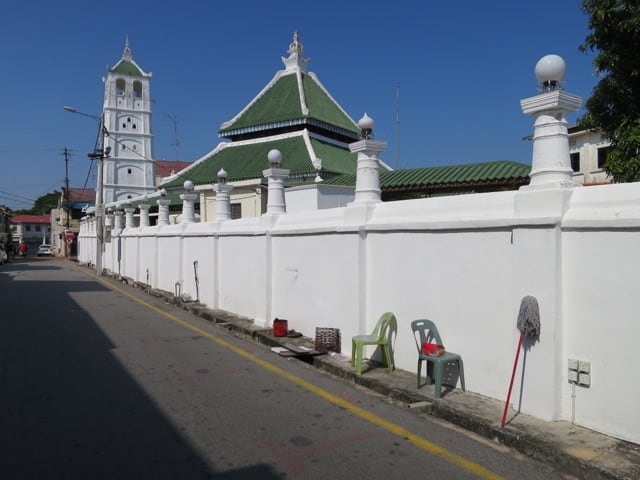
Other beautiful places of worship to visit in Melaka include Tengkera Mosque and the Cheng Hoon Teng temple.
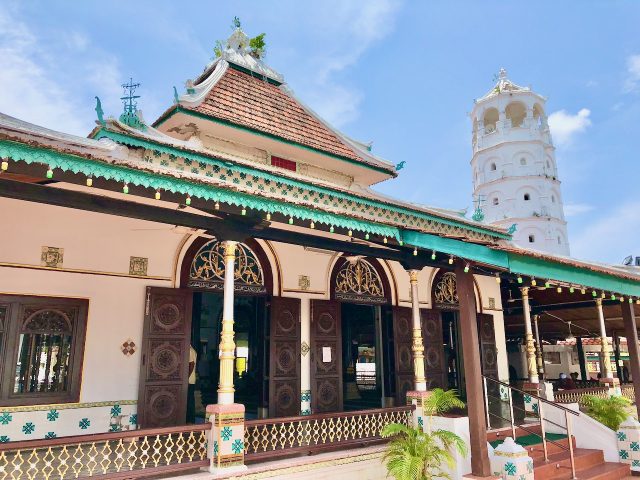

5. Admire the stately ‘Millionaire’s Row’
Running parallel to Jonkers Street is Heeren Street, or ‘Millionaire’s Row’. You’ll soon see the reason for this nickname – the houses and mansions along this street are simply gorgeous.
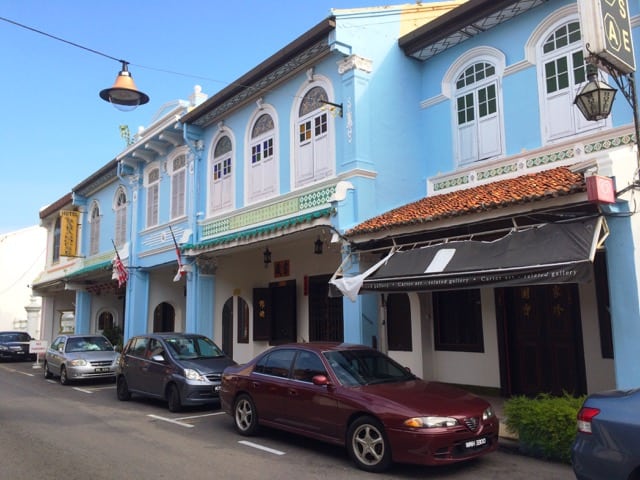

6. See artisans at work
The old town is home to many artisanal shops, studios and ateliers. You can see the artisans at work, creating fashion accessories, souvenirs and other handicraft. Look out for little arts and handicraft shops in the lanes connecting Jonkers and Heeren Streets.
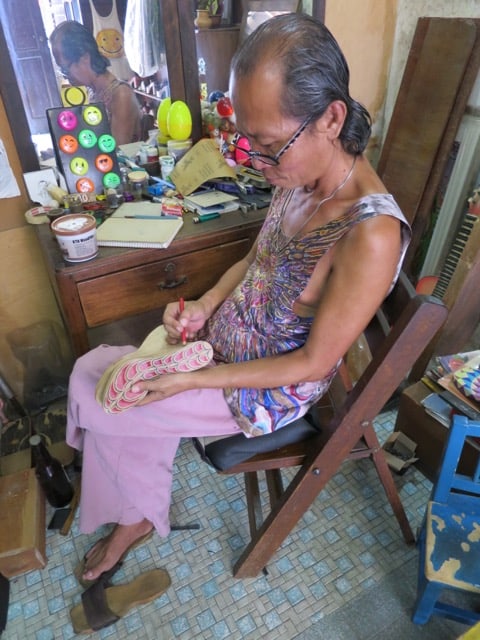
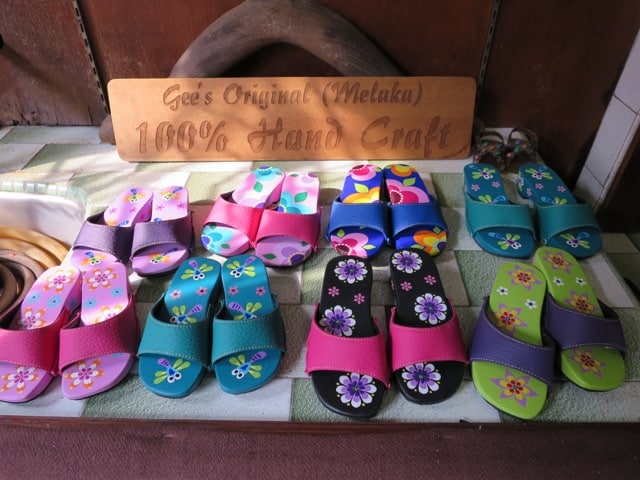
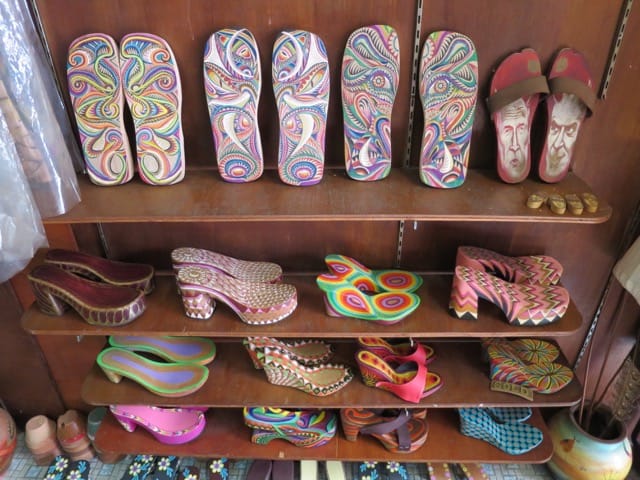
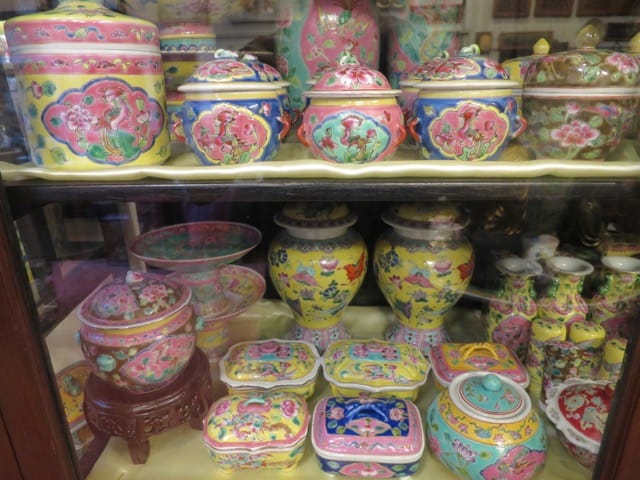
7. Go on a Melaka river cruise
The Melaka River was once one of the busiest ports in the world. These days, it’s a tranquil body of water lined by houses, shops and historic buildings, best seen from a boat. A river cruise is one of the top things to do in Melaka!
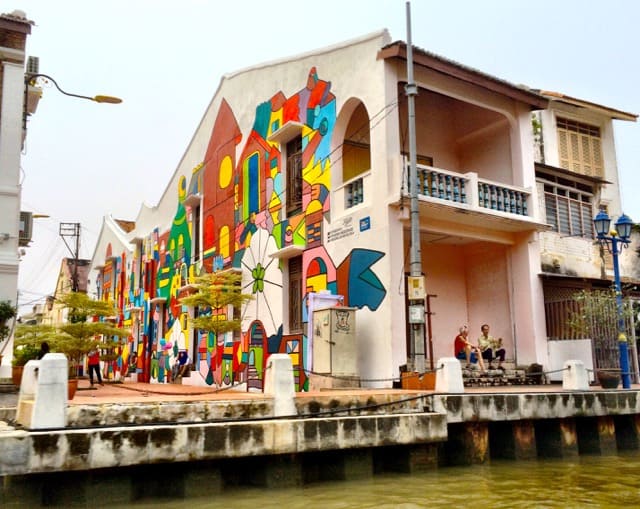
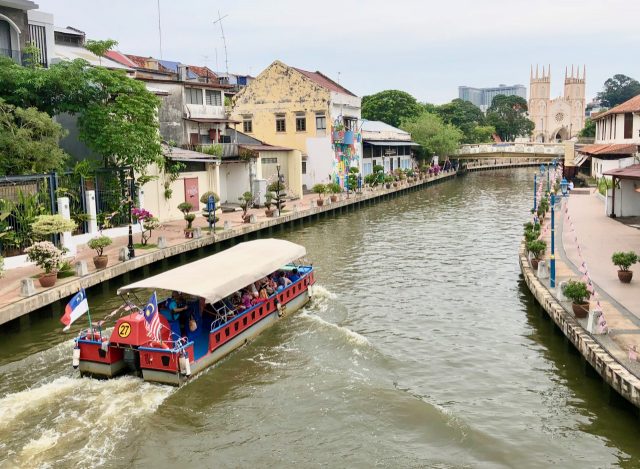
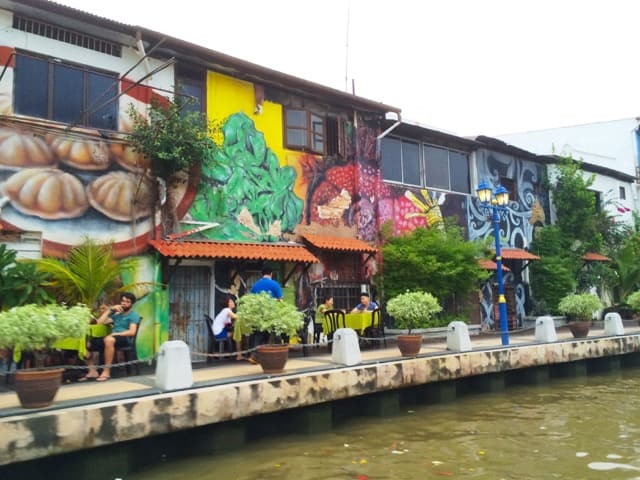
8. Indulge in Melaka food
Melaka’s melting pot of cultures is also evident in its cuisine. For instance, the Peranakan (Malay-Chinese) cuisine has its origins in Melaka. Portuguese colonists brought their cuisine with them too, which then fused with Malay, Chinese and Indian influences to create a cuisine unique to Melaka. Don’t miss the Portuguese specialties like Devil’s Curry and the famous egg tarts. Melaka food is a real treat so come hungry! Here are some of my favourite dishes:
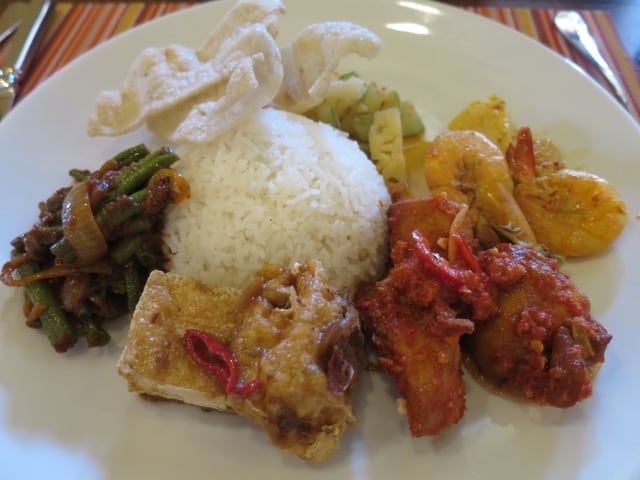
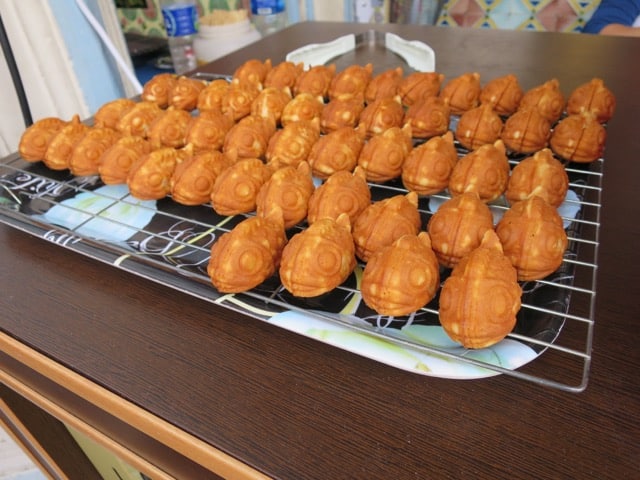
I feasted on various Melaka specialties such as ‘onde-onde’ (glutinous rice flour/pandan balls filled with palm sugar) and sambal (chili paste) dishes such as sambal kangkung (water spinach) and sambal chicken, and asam pedas fish (spicy sour fish curry). And I certainly didn’t miss the satay (BBQ chicken/beef/pork on skewers) as well and the infamous Nyonya Laksa (a curry broth with chicken and prawns)! It’s incredible!
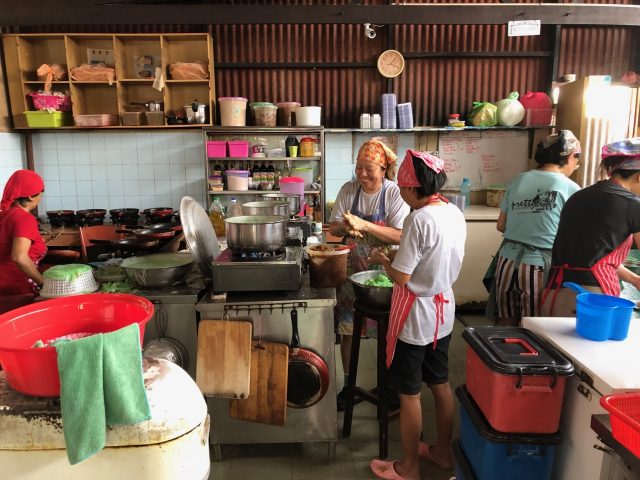
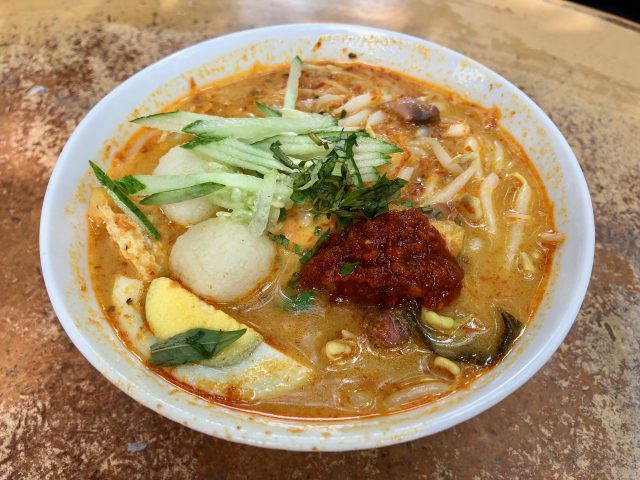
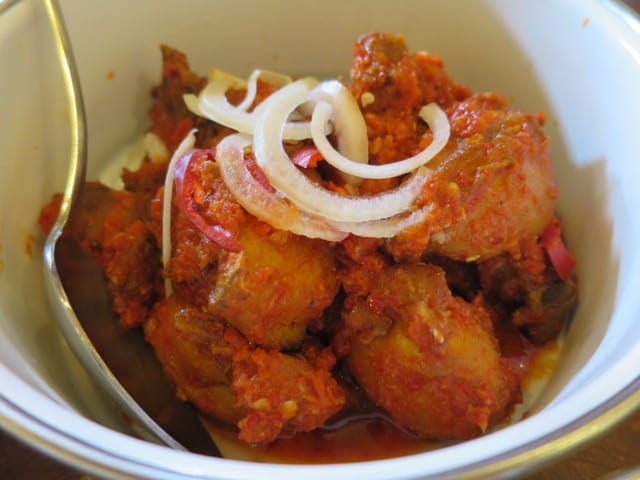
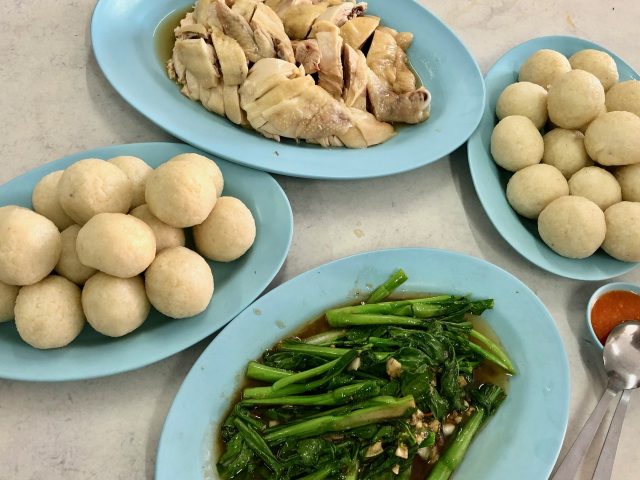
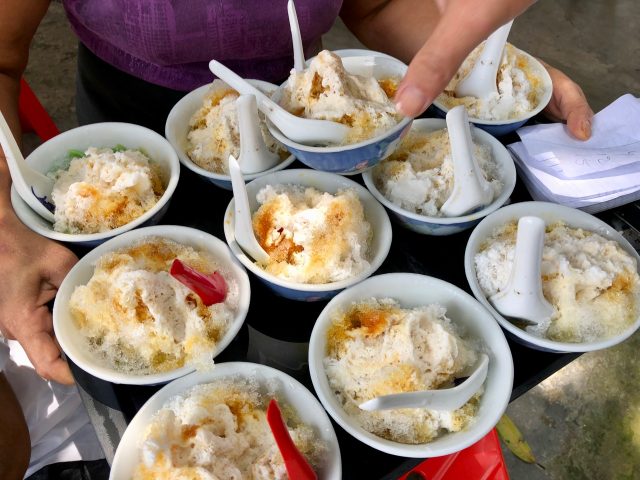
9. Visit the Portuguese Village
On the outskirts of town lies the Portuguese Village. This village was created in 1933 to house the Kristang people (a Malaysian ethnic group with mixed Portuguese and Malay heritage). I recommend going to the village in the evenings to tuck into its unique cuisine.
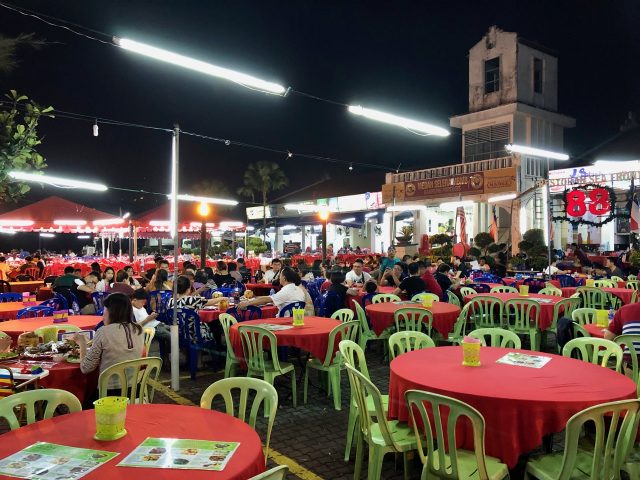
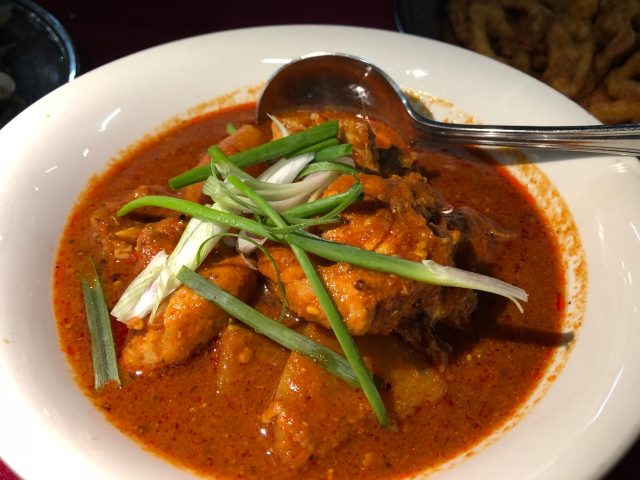
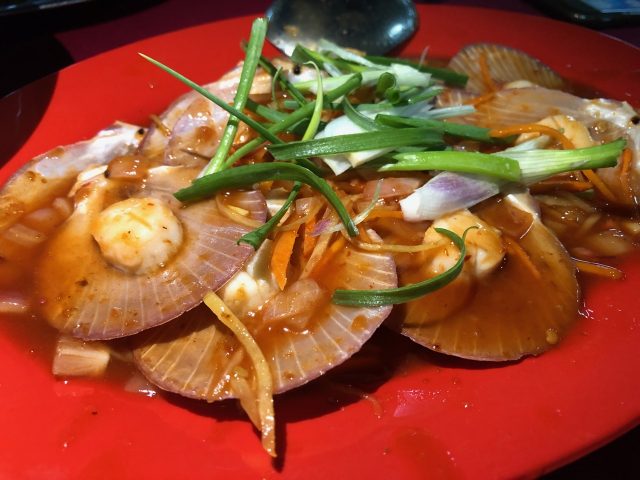
Check out this blog post with food and restaurant recommendations in Malacca.
10. Visit the Malacca Sultanate Palace
For those who are interested in the rich history of Melaka, a great thing to do is to visit the Malacca Sultanate Palace. This reconstructed palace is a short walk from A Famosa and is a replica of the Sultan of Melaka’s palace in the 16th century before the arrival of the Portuguese. It houses a large collection of artifacts, weapons, drawings and royal costumes.
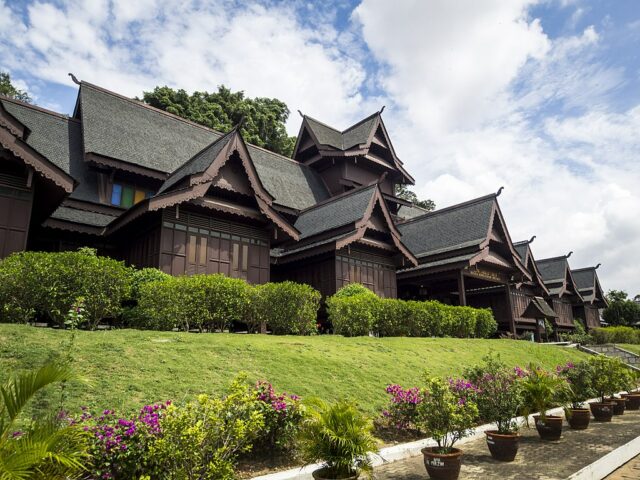
I spent a weekend in Melaka but it really wasn’t enough to see all the sights and discover more of the Malacca cuisine. I have to go back! 🙂
Getting to Melaka
Melaka is a roughly two-hour drive from Kuala Lumpur. You can get there easily by bus or taxi if you don’t have your own car. Search for rental cars in Malaysia. You can also choose to join a group tour for a day trip to Melaka.
Depending on your nationality, you may need a visa to visit Malaysia. Check the Malaysia visa requirements and apply for an online visa here.
Where to stay in Melaka
I highly recommend staying at the Casa del Rio, with its spacious rooms, riverside setting and excellent location.
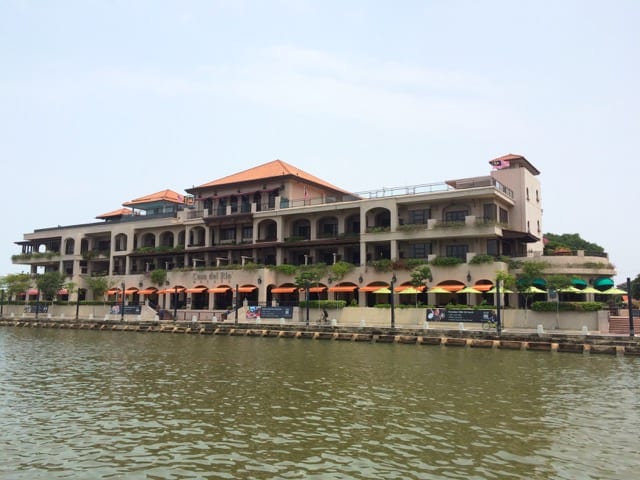
I can also recommend the luxurious Majestic Hotel, the lovely Nest House guesthouse, or one of the boutique hotels housed in beautifully restored historic houses, such as Timez Hotel (links to Booking.com).
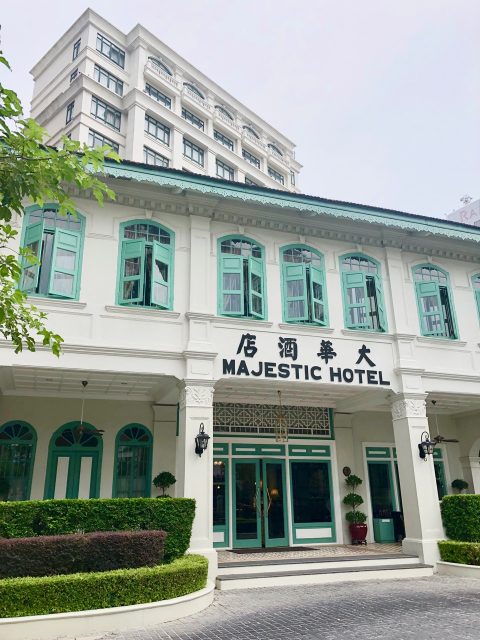
Read about things to do in George Town Penang, Malaysia’s other UNESCO World Heritage listed city.

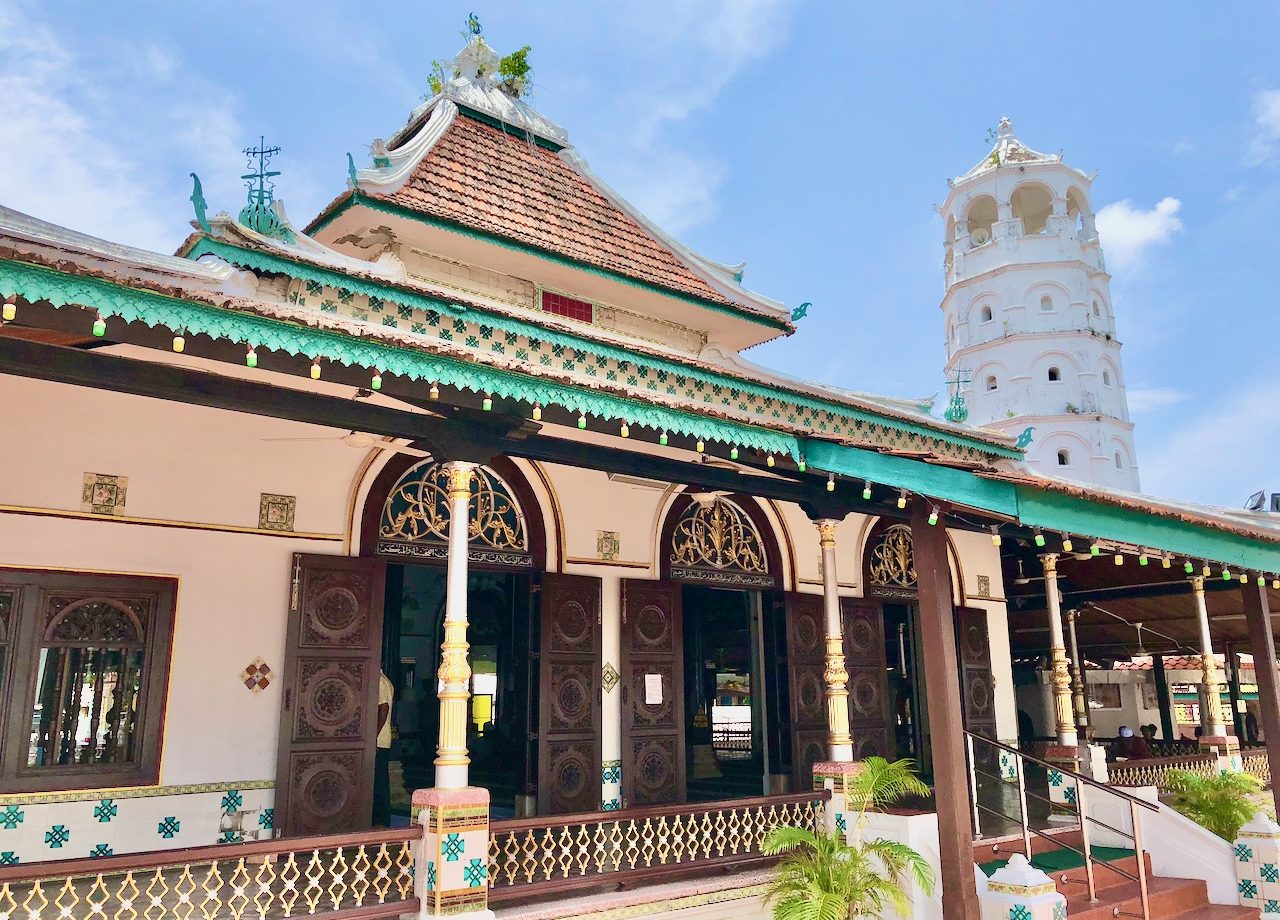
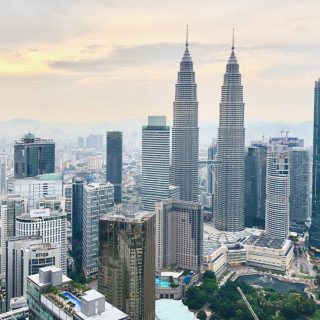
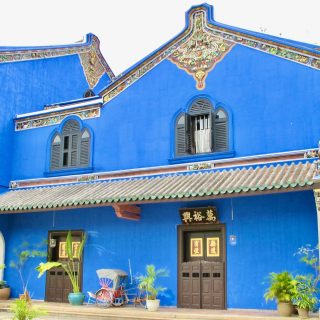
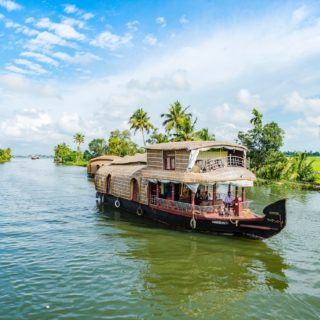
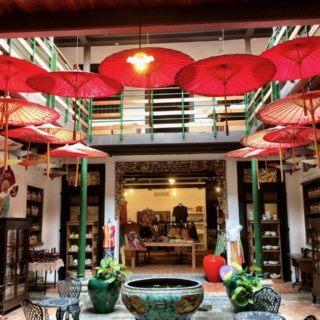






malacca founded by prince of sumatra
[…] Exploring Melaka […]
[…] Read about things to see in Melaka. […]
[…] about a weekend in Melaka and my impressions of Melaka, Malaysia’s other UNESCO World Heritage listed […]
Thank you so much!
Thanks for your comment. Gosh, my mouth is watering now! Peranakan food is sooo good!
Cheers,
Keith
Peranakan food is delicious. I don’t think I’ve ever had anything so flavorful. Every dish it seems is just packed with flavor!
[…] Town represents the British era from the end of the 18th century. The two towns [George Town and Malacca] constitute a unique architectural and cultural townscape without parallel anywhere in East and […]
Hi Ayu,
Thanks so much for your lovely comment. You’re more than welcome! I loved Malacca and hope to return one day! 🙂
Best regards,
Keith
Dear Keith,
As a Malaccanese, I thank you from the bottom of my heart for promoting Malacca <3
Aww, thanks Rob! Malacca sure is intriguing. 🙂
what a lovely article Keith. Brings me back to this vibrating (cultures!), exciting (hello kitty bejak!) and in intriguing (history) city in a flash 🙂
Thanks Samuel! Malacca is special! 🙂
Looking at your pictures brought back a lot of good memories. Malacca is one of my favorite cities not just in Malaysia but all of SE Asia for travel and especially food!
From food to amazing colonial architecture, Malacca has it all. Enjoyed my visit there several years ago!
Hi Suze,
Malacca is absolutely a highlight in Malaysia. I spent 3 days there and it wasn’t enough. Let me know if you need more tips about Malaysia.
Cheers,
Keith
Keith, I’m saving this as I may be visiting Malaysia next year and I’ve heard great things about Malacca and the Dutch, Indian and Malaysian architecture – such an intriguing combination!